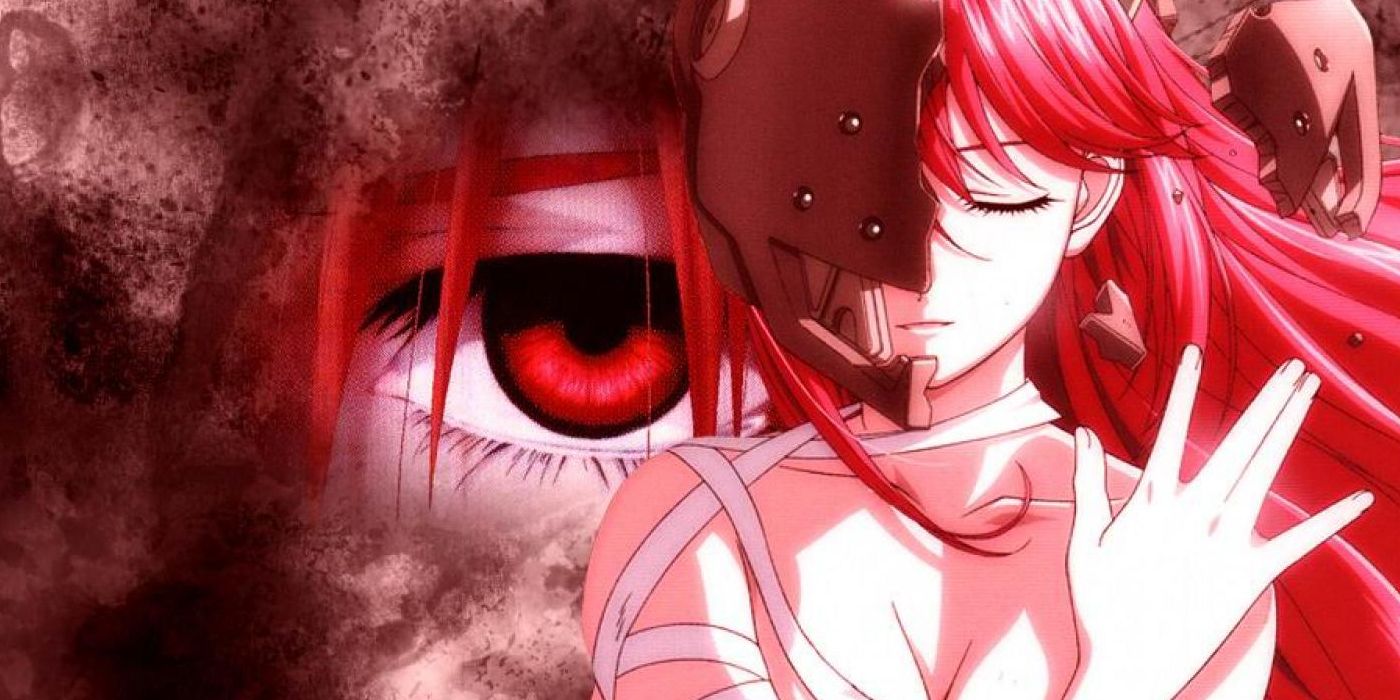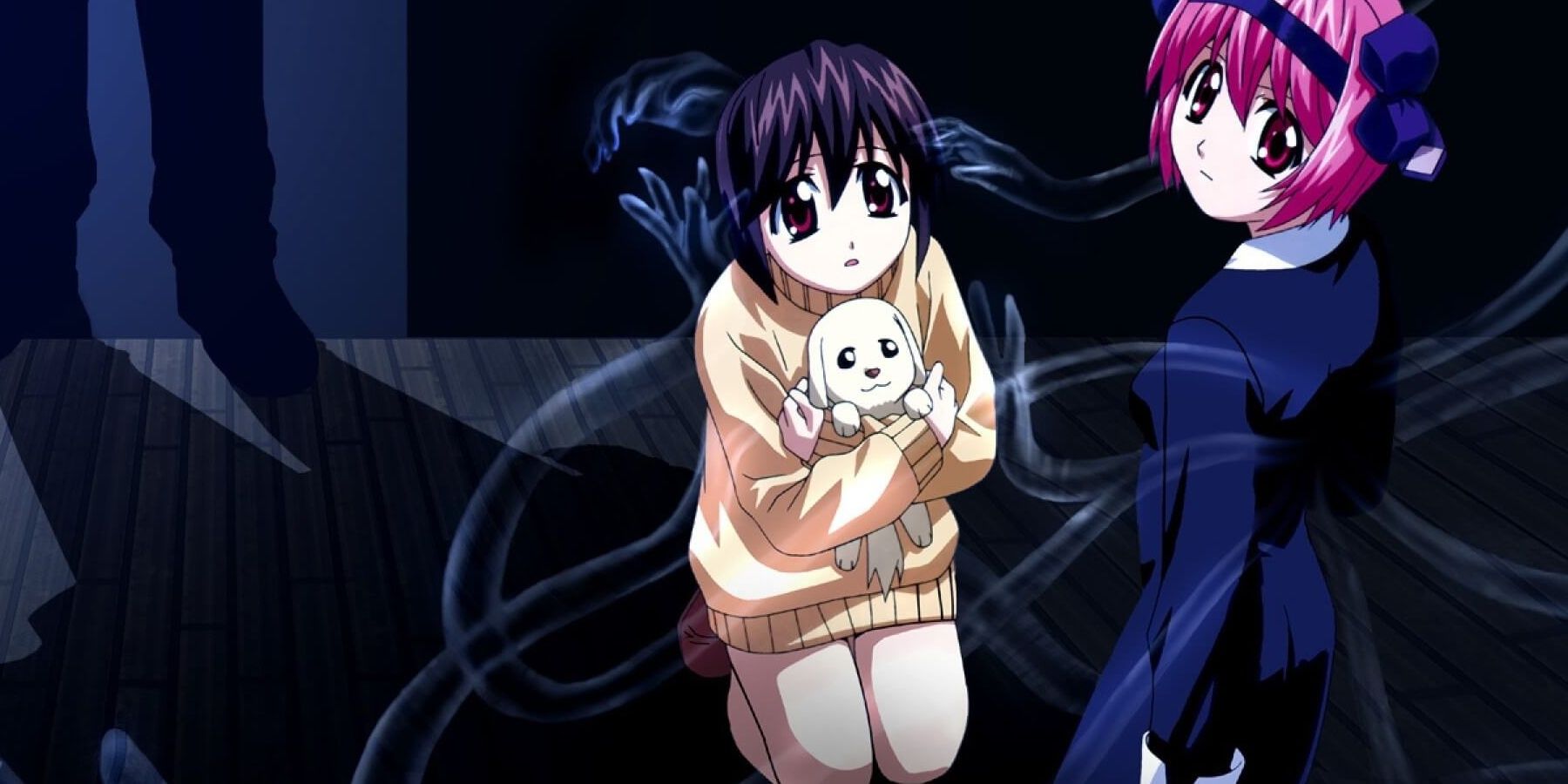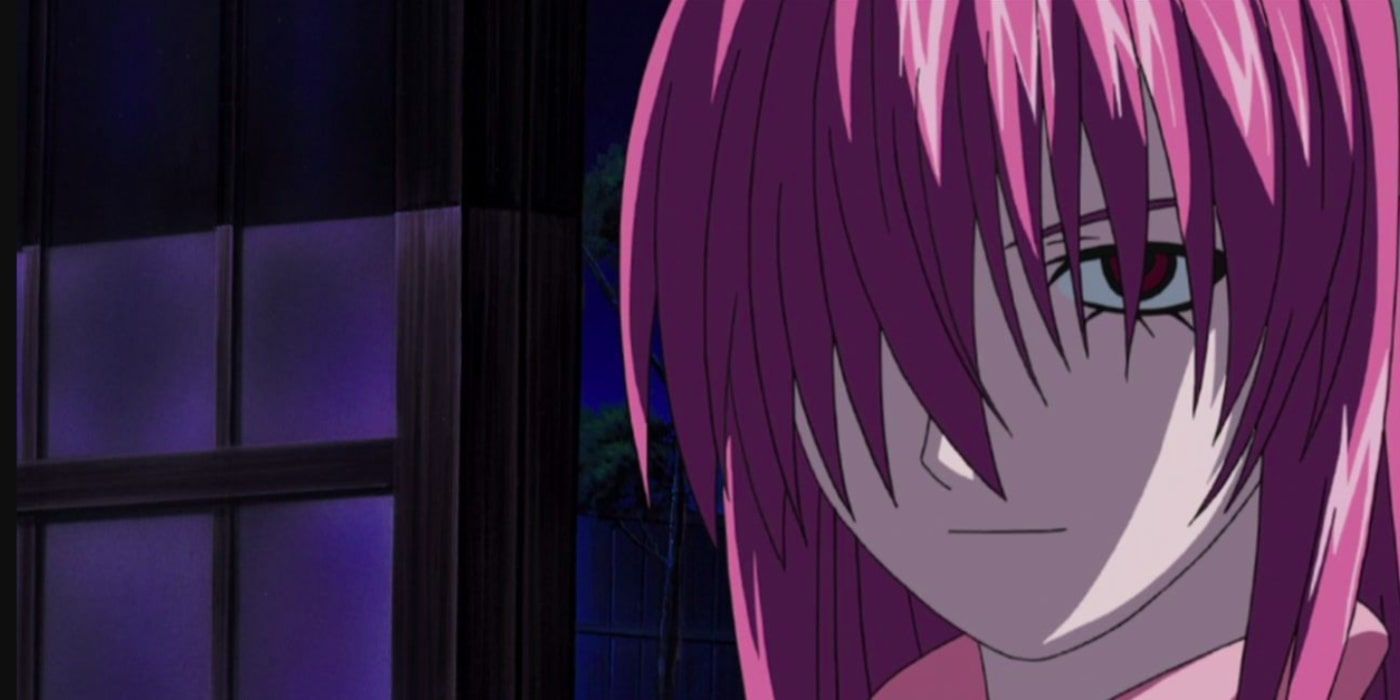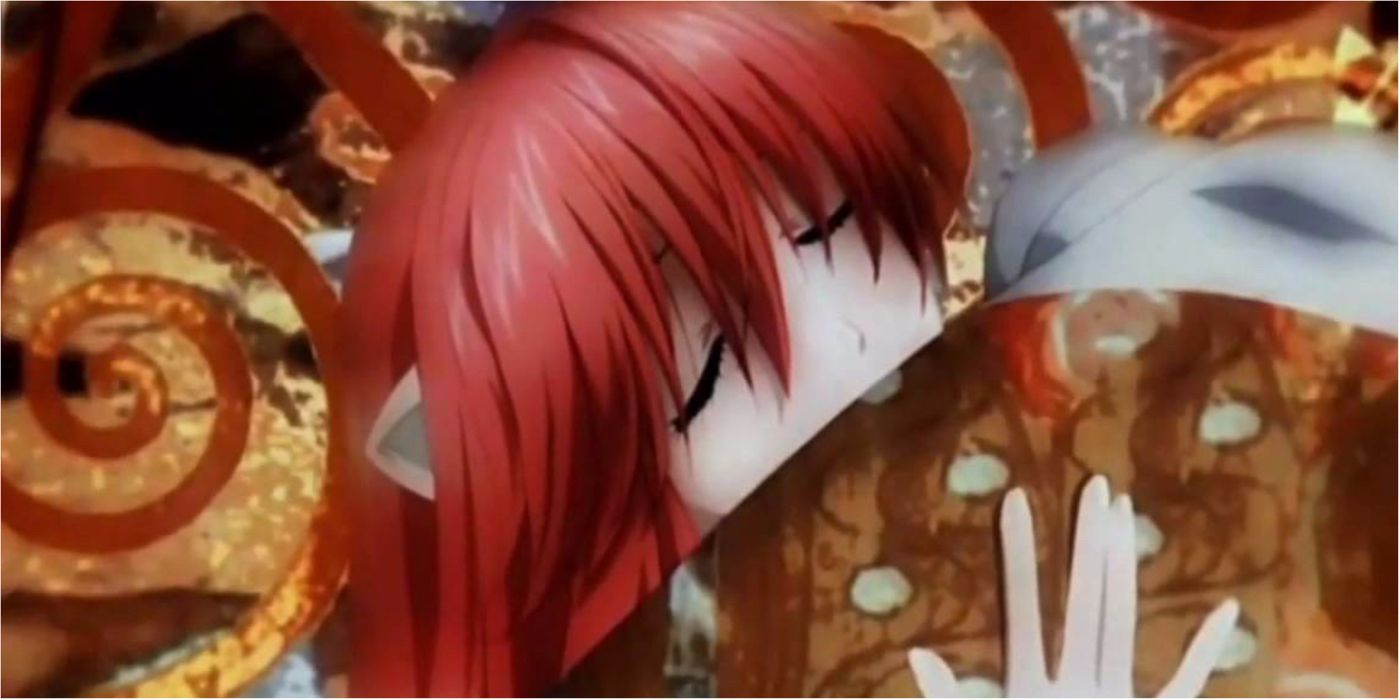In 2005, an edgy anime called Elfen Lied premiered in the United States and immediately blew up in popularity. Anime devotees of that era were largely categorized as fans of more family-friendly series, such as Yu-Gi-Oh! or Dragon Ball Z, but Elfen Lied was another beast, one of the wildly dark and violent properties that fell into the same vein as Berserk or X. When the series opened with a naked woman ripping limbs off her foes, viewers knew right off the bat they weren't watching Toonami.
Elfen Lied became a controversial rallying cry for those seeking edgy, too-violent-for-television anime. However, as fans matured, and approached shows with a more critical eye, Elfen Lied became kind of a joke, and now stands mostly forgotten.With the exception of that one scene, 18 years later, nothing in Elfen Lied stands out as anything more than a reminder of the past. Or, arguably, as a so-bad-it's-hilarious example of anime edge-lord nonsense.
Elfen Lied Ended on an Unfinished Plot
Elfen Lied is based on a manga of the same name -- or, at least, partially based on it. Airing for only 13 episodes, the anime ended before the manga. The source material, on the other hand, is 12 volumes long, which means the anime adapted only the earliest parts of the Elfen Lied story, cutting out huge chunks along the way. It made up its own, unsatisfying cliffhanger. While it might seem odd that Elfen Lied never received a second season, it's also not an uncommon occurrence for an anime to never fully adapt the manga's story. The anime, no doubt, served as a terrific advertisement for the then-ongoing manga.
Although the anime ended in Japan in 2004, it didn't blow up in popularity until it reached the United States in 2005, ironically the same year the manga ended. While the anime was popular enough in Japan, it received a far greater reaction overseas. It's crept into modern pop culture, with the Duffer Brothers citing both Akira and Elfen Lied as inspirations behind Stranger Things, and directly indicating Eleven is influenced by the character Lucy. They called it an "ultra-violent E.T." -- and they weren't wrong.
Lucy is the Queen of the Diclonius, a race of human mutations that is identifiable by its horns. They create supersonic limbs that can interact with the world, often violently. Lucy is kept in a government facility until, one night, she breaks free. But in the process, she's shot in the head, scrambling her memory, and creating a secondary personality named Nyu. Unlike the overtly malevolent Lucy, Nyu is a childlike innocent. Two cousins, one of whom may have known Lucy in the past, find Nyu and take care of her, while the government sends assassins and other Diclonius after Lucy.
Elfen Lied Prioritized Controversy Over Plot
Elfen Lied is more remembered for its explicit content than its plot. There is so much gore and violence in this anime that it borders on hilarious. People's limbs are ripped out, heads are peeled off, others are just plain ripped open. One memorable scene features Lucy ripping the head off a passing secretary and using her body as a shield, then throwing a pencil through another guy's head before ripping into his cohorts. It's telling that the most disturbing act of violence in the whole series is also the least visually explicit.
What makes the violence feel toothless is how little impact it seems to have on people. One Diclonius, Nana, gets her limbs ripped out by Lucy, only to just get new plastic limbs to replace her old ones. A mercenary, Bando, gets similarly maimed and blinded, only to get cybernetics to fix up all those injuries. None of the violence means anything to the characters, so why should it mean anything to us?
On top of the violence, there's the nudity, much of it involving under-aged characters. There's a ton of sexual situations that push the envelope, including a possibly incestuous relationship between the cousins. One character, Maya, is repeatedly raped by her father, and none of it ever is brought up following the initial moment it's mentioned. These genuinely disturbing topics feel exploitative, brought up only to shock you for a moment without ever going into how these events affect people.
Elfen Lies' Redemption Arcs Were Unjustifiable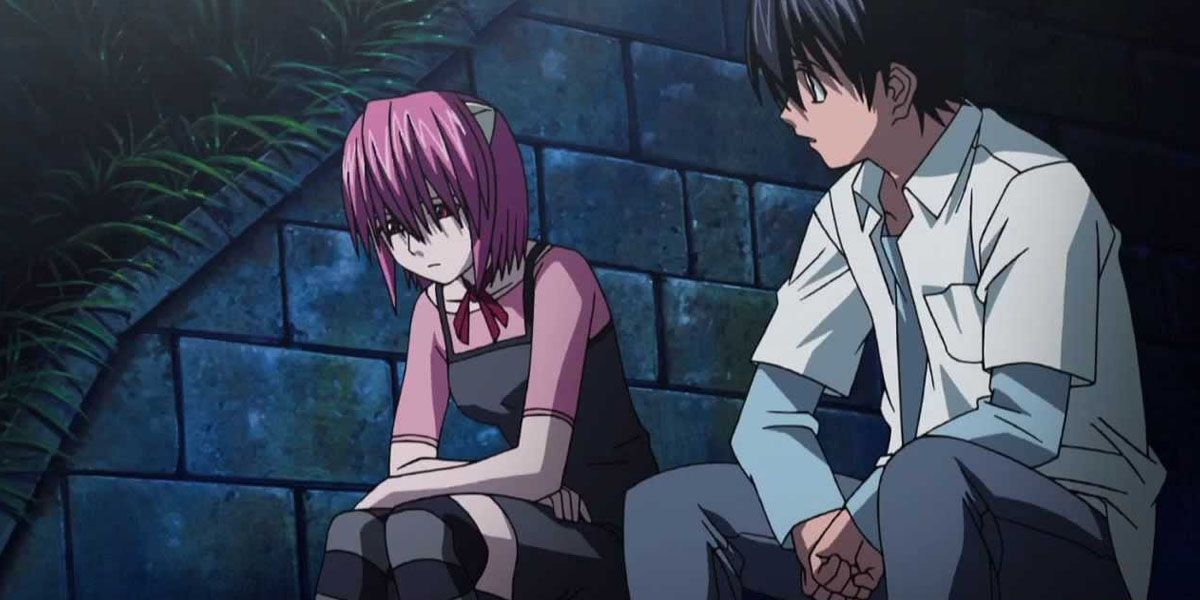
Elfen Lied director Mamoru Kanbe claims he tried to present a love story. Because of that, he created a world of heightened emotions, intended to make viewers cry. That leads to one of the anime's biggest problems: how the series frames Lucy's horrendous acts over the course of her life as justified because "she feels bad about it."
It turns out that Lucy did know Kouta. He proved to be the only good person she ever met in her hellish childhood and, thus, they become friends. However, the moment Lucy realizes Kouta has a life outside his friendship with her, she begins killing tons of people, including Kouta's father and sister, right in front of his eyes. In the manga, Kouta understandably never forgives Lucy. It turns out that rather than having two personalities, Lucy actually has three, with Lucy serving as a pure-evil side of the girl he used to know, Kaede. This is not to be confused with Kouta's similarly named sister, Kanae. However, Lucy is actively fought and suppressed for much of the manga.
In the anime, however, there is no distinction between Kaede and Lucy. It's implied that Diclonius are simply instinctively predatory. Lucy is a terrible person who feels bad about killing all those people, not because she's genuinely guilty, but rather because it damaged her relationship with Kouta. At no point does she really demonstrate any measurable guilt for any of the people she kills. Kouta, for his part, simply forgives Lucy, and even kisses her. The scene is so absurd that it retroactively ruins everything that came before it.
What Still Holds Up in Elfen Lied
In the whole series, however, two things do hold up. First is the beautiful opening sequence. "Lilium" remains one of the most haunting opening songs for any series, accompanied by an artistic, beautiful sequence. It's better than the content that follows. The other thing is the single scene in Elfen Lied that, upon revisiting, is still profoundly disturbing. It's a flashback to Lucy's childhood that reveals the awful orphanage in which she grew up. Lucy is relentlessly bullied, but finds comfort in raising a puppy. She tells a girl she believes to be a friend about the puppy, only for the little brat to tell the bullies. They then beat the puppy to death with a vase. While all of them think this is hilarious, Lucy (and, in turn, the audience) are profoundly disturbed.
Lucy's powers awaken in a moment of rage, and she paints the walls with the kids' blood. The scene demonstrates gradual build-up, ratcheting up genuine tension, only to release it in a way that fits what's come before. It's proof Elfen Lied could have been a great anime, but it was instead mired in trying too hard to be violent and edgy.

